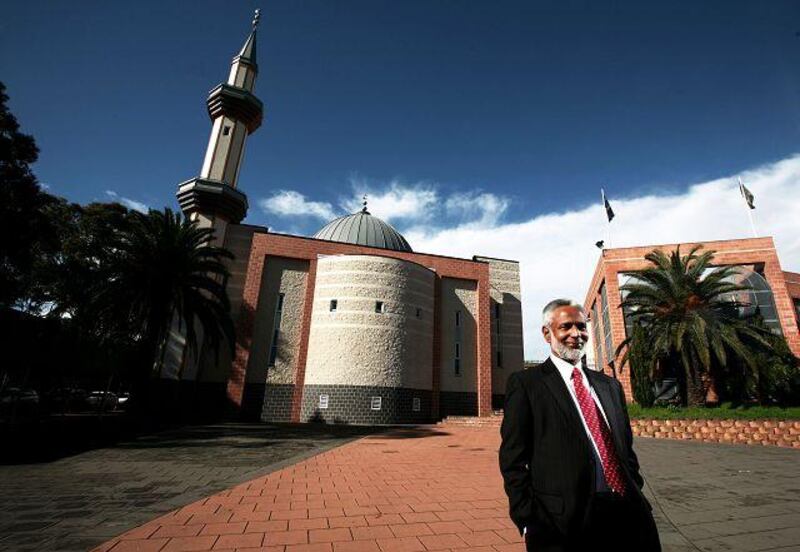SYDNEY // Enraged residents have vowed to continue their fight against the building of another Islamic school in Australia's biggest city, Sydney. Planning permission has been granted by councillors in the Liverpool district following a long-running and acrimonious debate that has been stained with allegations of racism and religious bigotry. The contentious project will see a school for 800 mostly Muslim pupils constructed in Hoxton Park, a working class suburb 38 kilometres west of central Sydney. Locals have fought a vociferous campaign against the plan, citing a string of grievances relating to increased traffic, pollution and noise, which could, in their opinion, drag down property prices. They have vigorously denied suggestions that their actions are motivated by anti-Muslim sentiment, which has infected discussions about Islamic colleges in other parts of Australia. "Traffic congestion has become a bit of a euphemism for prejudice and racism," said Geoff Newcombe, the executive director of the Association of Independent Schools in New South Wales. "You can see an incredible amount of emotion with some of these people who are opposing the development of Islamic schools. You can't imagine that emotion would be there if, say, a Catholic or an Anglican school wanted to set up in that particular situation." "With some people there is just a prejudice against the Islamic faith and that's a shame," Mr Newcombe said. "If you go into these schools and realise they are mostly Australian-born children, they go out of their way to emphasise Australian culture and values." There are 15 Islamic schools in New South Wales, Australia's most populous state, which cater to about 8,000 students. Many are located in low socio-economic areas and receive funding from both the federal and state governments, while community leaders have stressed that Australia's rapidly growing Muslim population needs more faith-based education. Planning applications invariably raise anger among some disaffected neighbours, which Mr Newcombe has blamed on misplaced apprehension. "There's probably some level of fear. Some people will think that they preach terrorism within the schools and that is something that we are gradually working through to make sure the community understands these schools are Islamic-Australian schools," he said. Protests decrying the Hoxton Park proposal have been held by residents who believe their small corner of suburbia will not be able to cope with the influx of hundreds of students. John Andrews, the president of the Liverpool Action Group, which has spearheaded the anti-school campaign, insisted that opposition to the scheme has nothing to do with race or religion. "It is not driven by racism," he said. "We are worried about the safety of residents. We get massive traffic congestion as it is and if another school is built, there will be a greater risk for residents and their children. "We would be upset if it was any type of school; Catholic or Anglican." Mr Andrews has acknowledged that a growing city such as Sydney needs more schools but believes they should be built elsewhere "in a more appropriate location". His main concern is that roads in the area would grind to a halt under the weight of more development. "It [Hoxton Park] cannot sustain another school." After months of heated discourse, an independent panel set up by the local council has finally given construction the go-ahead. The facility will be a new campus of the Malek Fahd Islamic school, which is located in a neighbouring Sydney suburb and, with 1,800 students, is the largest Muslim college in New South Wales. Intaj Ali, the principal, is delighted the project has been approved and believes it will bring great benefit to the community. "We ensure that our children do get the best of both worlds," Mr Ali said. "They get Islamic studies knowledge, which is a very small percentage of our time but at the same time they do have excellent teaching in other subject areas. So, when our students leave the school they are well-rounded citizens." Islamic institutions are open to youngsters of all faiths but the vast majority are Muslim. All Islamic sects are represented, while most pupils were born in Australia and herald from Arab backgrounds, many others are from Turkey, Indonesia, India, Pakistan and the South Pacific Islands. "Even though they are from various cultural backgrounds, they are normal Aussie kids," said Mr Ali, who also expressed his exasperation at the opposition that Islamic schools have faced in Australia. "It is frustrating when we can't get the applications approved. When we go to a rural area, then we have difficulty, when we are in a residential area we also have difficulties. As far as my personal experience is concerned, I have not come across any prejudice, any racial problems." Even though planning permission has been granted, undaunted residents have promised to keep up their vehement opposition, although their options to challenge the development appear limited. "We believe we have been given a raw deal," Mr Andrews said. "We are going to fight it every inch of the way." pmercer@thenational.ae
Suburbia fights Sydney Islamic school
Planning permission is granted, but angry residents claim proposed college will increase traffic, pollution and noise.

More from the national




